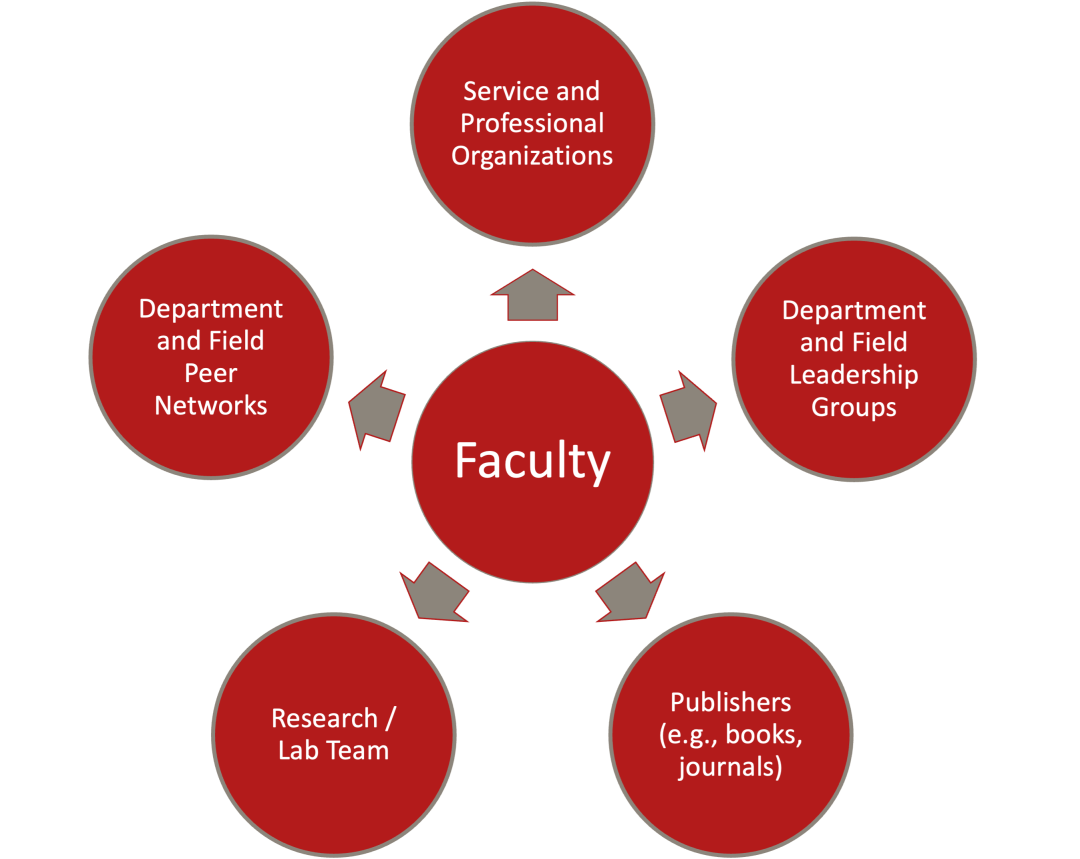Why Does this Matter?
The FAIM framework fosters accountability for ethical and compliant research practices in the academy and helps promote intellectual risk-taking that leads to novel and impactful research.
Inclusive mentoring:
- supports the retention and progression of mentees, especially those with social identities historically underrepresented in the academy.
- facilitates mutual appreciation and understanding between mentors and mentees about each other’s cultures and backgrounds.
- promotes mentees’ agency, self-efficacy, scholarly identity development, and responsible research conduct.
- encourages the creation and engagement in communities of learning.
- fosters belonging as a result of community-building and collaborative understanding across difference.
- accelerates equity-based systemic change.
Imperative for Inclusive Mentoring
When mentees feel affirmed for who they are as whole individuals through their mentoring relationships, they experience a greater academic and social sense of belonging, leading to more positive and productive academic and professional outcomes.
Lack of Access and Opportunity
Inclusive mentorship promotes the mutual growth, development, and success (writing and research productivity, promotion and tenure, etc.) of mentors and mentees in the academy. However, its potential is unrealized.
For example, ~25%-45% of doctoral students and postdoctorate scholars are dissatisfied with aspects of their mentoring relationships (Sarabipour et al., 2023).
Similarly, many faculty face exclusion, a lack of collegiality, and as an extension, insufficient mentorship. Relationship dynamics such as microaggressions and perceptions of historically underrepresented groups as less qualified and less intelligent when compared to their peers amplify a dearth of quality mentorship for scholars with social identities historically underrepresented in the academy (Eagan Jr. & Garvey, 2015; Jayakumar et al., 2009).
With the FAIM framework, we seek to advance equitable access and opportunity across graduate education and the professoriate for all scholars, and especially for those from backgrounds historically excluded from and underrepresented within the academy.
Faculty at the Center
Individual Guidance
Faculty can significantly impact a mentee’s career. For example, faculty can be a gatekeeper and provide introductions to extended networks, a champion who provides access to opportunities through their endorsement to trusted colleagues, or an advocate who vies for the interests of a mentee amongst other things. NCFDD’s (previously known as the “National Center for Faculty Development and Diversity) Mentor Map highlights the various roles in which faculty mentors can support faculty mentees. The map is also available for download on the FAIM Practical Tools & Resources page.
Systemic Change
Systemic change requires reimagining policies and practices across multiple spaces. Therefore, faculty are uniquely positioned to implement change given their various spheres of influence.

Spheres of Influence
Faculty members’ spheres of influence include peers who develop and implement policies and practices that govern academic and professional success in connected ways, including as they relate to publication, grant, admissions, tenure decisions, etc.
When faculty champion and implement inclusive mentorship within and across their colleague networks and professional and academic organizations, they contribute to new mentoring-related policies and practices to move toward systemic change towards equity in graduate education and the professoriate.
